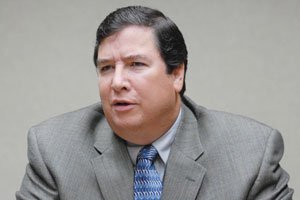The city council gave a resounding ‘no’ Monday night to
Councilman Craig Gartman’s request to gather Gilroy’s unions,
council members, city officials and residents in one room for a
budget brainstorming session.
The city council gave a resounding ‘no’ Monday night to Councilman Craig Gartman’s request to gather Gilroy’s unions, council members, city officials and residents in one room for a budget brainstorming session.
“I do not want all four unions in here having a pissing contest,” said Councilman Dion Bracco, who took part in the 6-1 vote against Gartman’s motion to hold a special public meeting. “We have professionals and we pay them money to deal with this, and I think that’s how we should deal with it.”
To come up with additional budget cuts instead of more layoffs – which council members have said remains a distant possibility – City Administrator Tom Haglund and his professional team have been talking off and on with Gilroy’s four bargaining groups: the Gilroy Management Association; the American Federation of State, County and Municipal Employees Local 101; the Gilroy Police Officers Association; and Local 2805, IAFF Fire Unit representing Gilroy firefighters. No agreements have been reached yet because no offers have been made, but a hot topic is the freeze on merit-based raises the council approved March 23 after The Dispatch reported that 31 employees had received more than $130,000 in merit-based pay hikes since layoff talks began last September. Forty-eight full-time employees lost their jobs Jan. 31.
The council has also been discussing wages, hours, benefits and working conditions during recent closed sessions, where council members candidly contemplate any proposals or reactions. A closed session occurred after the regular public meeting Monday night, part of a series of closed-door talks in the slow, diplomatic negotiation process that does yield results – unlike a finger-pointing free-for-all, said AFSCME Business Agent Tina Acree, who represents Gilroy’s largest union, which includes engineers, emergency dispatchers and building inspectors.
“Once you allow (a public meeting) to happen, you will actually stall government because it will just be a pissing match, and nothing will get done,” Acree said Tuesday. “I would never agree to that type of situation.”
But agreeing on how to balance the city’s finances is a pressing issue. Falling sales tax revenues and a standstill in fee-generating development, which officials expect to last throughout next fiscal year, have practically erased more than $8 million in general fund cuts Haglund made since he came on board in May 2008 – a month before the council passed the current budget. This year’s deficit will likely top $4.3 million – which will have to come out of the city’s dwindling $21.9 million reserve fund along with other uncovered developer-linked expenses estimated to total about $8.4 million, according to February projections. City finance officials also expect a $1.1 million hit to property tax revenues next fiscal year to erase nearly $900,000 in savings the council planned for.
In addition to shirking Gartman’s public talk proposal, Bracco also questioned alleged complaints from union members who Gartman claimed wanted the council to pursue new ideas.
“I deal with union employees who come to me every day and I don’t hear these complaints,” Bracco said.
Mayor Al Pinheiro said union members were coming to him and asking for compromise and progress – not “a back-and-forth show for the public.”
“We’re never going to agree having four unions here,” Pinheiro said. “It’s unprecedented and the kind of stuff that’s just going to be pointing fingers at each other, and it won’t be a healthy situation.”















